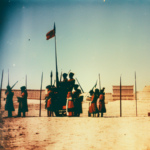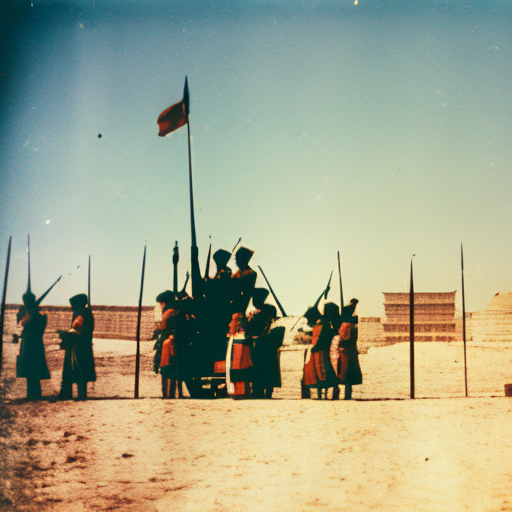The Reign of Emperor Ashoka
Emperor Ashoka, also known as Ashoka the Great, ruled over the Maurya Empire in ancient India from 268 BCE to 232 BCE. He was the third ruler of the Maurya dynasty and is considered one of the greatest emperors in Indian history. Ashoka’s reign was marked by significant political, social, and religious transformations.
Early Life and Ascension to the Throne
Ashoka was born in 304 BCE to Emperor Bindusara and Queen Dharma. He was the grandson of Chandragupta Maurya, the founder of the Maurya Empire. Ashoka was initially not the heir apparent, but due to his exceptional military skills, he was appointed as the governor of the province of Ujjain. After the death of his father, Ashoka successfully seized the throne in a power struggle against his brothers.
The Kalinga War and Its Impact
One of the most significant events during Ashoka’s reign was the Kalinga War in 261 BCE. The war was fought between the Maurya Empire and the kingdom of Kalinga, located on the eastern coast of India. The Kalinga War was brutal and resulted in a massive loss of life and destruction. Witnessing the devastation caused by the war deeply affected Ashoka, leading to a profound change in his outlook.
Conversion to Buddhism
After the Kalinga War, Ashoka embraced Buddhism and became a devoted follower of the religion. He renounced violence and adopted a policy of non-violence and compassion. Ashoka’s conversion to Buddhism had a profound impact on his governance and policies. He issued a series of edicts known as the “Ashoka Edicts,” which were inscribed on pillars and rocks throughout his empire. These edicts promoted moral values, social welfare, and religious tolerance.
Social and Administrative Reforms
Ashoka implemented numerous social and administrative reforms during his reign. He established a network of roads and rest houses to facilitate trade and communication. Ashoka also introduced policies to promote the welfare of his subjects, including the construction of hospitals and the appointment of officials to oversee public health and sanitation. He encouraged the spread of education and the translation of religious texts into different languages.
International Relations and Spread of Buddhism
Ashoka’s reign saw extensive diplomatic efforts and interactions with neighboring kingdoms and empires. He sent emissaries to various regions, including Greece, Egypt, and Sri Lanka, to spread the teachings of Buddhism. Ashoka’s efforts played a crucial role in the spread of Buddhism beyond India’s borders and its subsequent establishment as a major world religion.
Legacy and Influence
Ashoka’s reign left a lasting impact on Indian history and culture. His policies of religious tolerance and non-violence shaped the moral and ethical foundations of Indian society. Ashoka’s conversion to Buddhism and his patronage of the religion led to the establishment of numerous Buddhist monasteries and the preservation of Buddhist scriptures. His edicts, which promoted social welfare and moral values, continue to inspire people to this day.
In conclusion, Emperor Ashoka’s reign was a transformative period in Indian history. His conversion to Buddhism, social and administrative reforms, and diplomatic efforts left a lasting legacy. Ashoka’s commitment to non-violence and compassion continues to inspire people around the world, making him one of the most revered figures in history.












